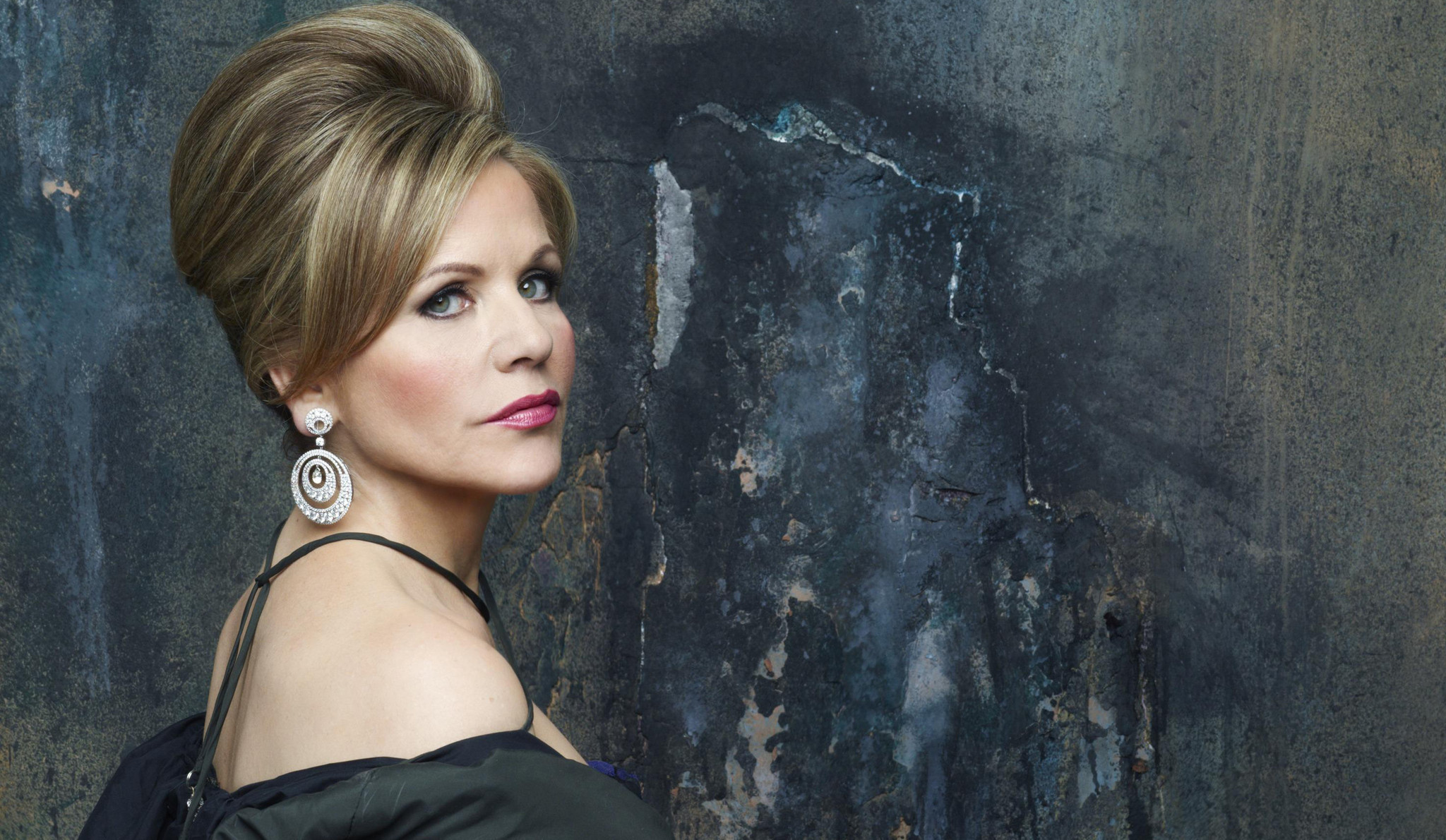
The art of song, the art of Renée Fleming
By Tim Smith, The Baltimore Sun
There was something wonderfully reassuring about Renée Fleming’s recital Monday night at the Kennedy Center.
To begin with, the soprano, joined by pianist Olga Kern in this Washington Performing Arts presentation, reaffirmed her vocal radiance and uncommon ability to hold an audience in the palm of her hand (or in the elegant folds of her inevitably refined couture — she and Kern both put on quite a fashion show).
For those whose favorite sport is Find the Flaws in the Diva, I suppose they will have spotted a top note that didn’t blossom fully or a brief touch of droopy intonation. What I heard was an artist who, after more than 25 years on the scene, still retains a good deal of the creaminess in her timbre that first caused ears to perk up, an artist still energized by words, an artist who still delivers.
This occasion underlined, above all, the fact Fleming remains anything but a generic soprano (her distinctive portamento alone assures that).
In an astutely chosen program, she also reasserted the value of the art song, a genre that never really gets enough respect, let alone love, these days. It was great to hear an artist of this stature devoting her attention to lieder and Russian song, instead of popular arias, and doing so in a large concert hall with a packed house.
Extra marks for turning the first half of the program over to Schumann’s song cycle “Frauenliebe und Leben” (“A Woman’s Love and Life”). As Fleming noted in remarks to the audience, the cycle, which she sang early in her career, seems to have fallen out of favor over the decades.
She suggested that part of the problem could be the texts, which reflect a dated view of human relationships. Then again, we make plenty of allowances for unfashionable depictions of women in opera. I suspect it’s simply part of the sorry, steady decline in appreciation for lieder.
Schumann was at his most inspired when he fashioned the eight songs that form this cycle, which traces a woman’s experiences of falling in love at first sight, having her affection reciprocated, getting married, bearing a child, and facing her husband’s unexpected death. It’s a great work, and a great opportunity for an artist with imagination and feeling.
(When Barbra Streisand was flirting with classical music way back when, I kept wishing she would investigate this cycle. She could have interpreted the heck out of it.)
Fleming burrowed into the material with a keen appreciation for the eloquent curves of the melodic lines and the evocative power of the poetry.
The soprano’s extra warmth of tone in the fourth song (the 19th-century equivalent of “Put a Ring on It”); her exquisite nuances of phrasing in the time-suspending, closing verse of “Susser Freund”; and her visceral way of communicating the weight of the loss in the final piece — these were among the highlights of this sensitive performance.
I was a little less impressed with Kern’s playing, which struck me as perfectly accurate, but not always multidimensional. The piano postlude, which, in recalling the cycle’s opening material, provides a welcome glimmer of hope and renewal, sounded especially plain.
The pianist was in her element, though, when attention shifted to Rachmaninoff, whose songs are as challenging and rewarding for an accompanist as they are for a singer. With technical elan and considerable range of color, Kern provided a firm foundation for Fleming’s often quite rapturous vocalism.
The soprano’s darkly beautiful low register emerged at several points to compelling effect, and her long-breathed phrasing proved admirable (notably in “Twilight” and “A Dream”). There seemed to be, understandably, just a little more drive and determination from Fleming when, in “Spring Waters,” she reached the line “Spring is coming.”
It wasn’t a bad idea to give Kern a solo amid this portion of the recital — Rachmaninoff’s own gorgeous transcription of his song “Lilacs” — and the pianist delivered it nicely. But I wish the set-up hadn’t look so awkward, with Fleming walking off stage beforehand.
The remainder of the (printed) program was devoted to Strauss — “My desert island composer,” Fleming called him. Surely if this soprano was born to sing the music of one composer above all, it’s Strauss.
She chose an interesting sample of his lieder that balanced well-known with less often encountered, and gave to each a great deal of vocal velvet and expressive intensity. This was particularly true in “Ruhe, meine Seele” and “Liebeshymnus,” which heated up the hall considerably.
The fully operatic “Die heiligen drei Konige aus Morgenland” found Fleming in rapturous form. Kern, in the unenviable position of duplicating at the keyboard what Strauss did so much more spectacularly in his orchestrated version of this song, played the majestic coda with admirable breadth.
“I’m warmed up now,” Fleming said before launching into encores, which included more Strauss — a soaring “Cacilie” — and Gershwin’s “Summertime.” The soprano seemed to get the entire hall, ushers and all, to chime in perfectly for a chorus of “I Could Have Danced All Night,” the kind of disarming experience Fleming can deliver so effortlessly.
There was also an account of “O mio babbino caro” so melting that it became much easier to face the nagging cold outside afterward.